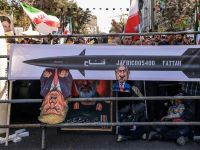The Moroccan Telecommunications Control Authority, ANRT (Agence Nationale de Réglementations des Télécommunications), recently called on tenders to submit proposals for the 1999 financial year audit of the national telecom operator, Maroc Telecom.
The fixed deadline is September 15, 2000 for both national and international audit firms. Candidates are to orally present their proposals at the ANRT headquarters.
The ANRT is a financially independent public agency, responsible for the regulation of the local telecom market by awarding licenses, supervising signed arrangements and standardizing equipment.
Auditing the state-owned Maroc Telecom constitutes a further step towards the privatization of the country’s telecom sector. The company was originally scheduled to initiate its privatization last June, however the move was postponed for the coming September.
Maroc Telecom is considered to have greatly advanced Morocco’s telecom infrastructure. It has connected Morocco to Europe and North America via submarine fiber-optic cables and satellite networks, through Intelsat and Arabsat. The company also increased the number of fixed networks from a mere 250,000 lines in 1982, to 1.5 million by mid-1999, and made the wireless telephone service (GSM) available to more than 90 percent of the Moroccan population.
Maroc Telecom’s 1999 financial results, announced last May, indicate that the national telecom operator is financially sound. However, as aforesaid, they are yet to be confirmed by an independent auditing body assigned by the ANRT.
The figures presented show the company's turnover increased from 7.4 billion Moroccan dirhams (DH) in 1998, to 8.5 billion this year, a 15 percent rise. Maroc’s net income rose 55 percent to reach 2.3 billion DH — a rise largely attributed to the growing number of subscribers, which climbed to 1,841,000 in 1999 from 1,510,000 in 1998.
Ittissalat Al Maghrib (IAM), the state phone operator, is also expected to undergo comprehensive auditing as part of the ANRT work plan for 2000-2001. Médi Telecom, the second GSM operator, will apparently follow by the end of 2000. Médi, a consortium of Spain’s Telefónica, Telecom Portugal, BCME Moroccan bank and Afriquia, was awarded the second GSM license last July, having paid a license fee of $1,080,000 billion, making it one of the most expensive GSM licenses in the world. ― (Albawaba-MEBG)
© 2000 Mena Report (www.menareport.com)







